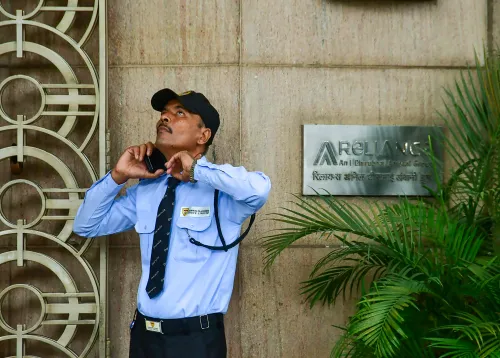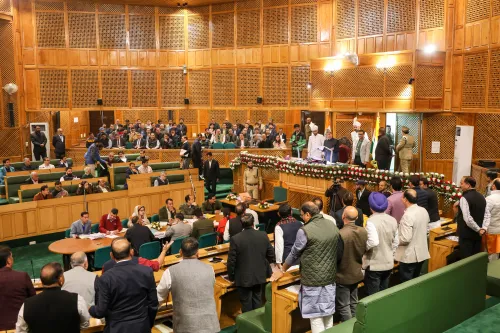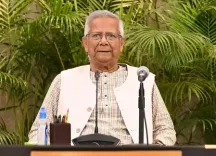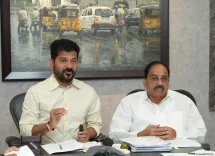Did a CRPF Constable Violate Security Protocols by Marrying a Pakistani Woman?

Synopsis
Key Takeaways
- Constable dismissed for unauthorized marriage.
- Violation of security protocols raises alarms.
- Departmental inquiry revealed serious breaches.
- Legal implications for both parties involved.
- National security remains a top priority.
New Delhi, May 3 (NationPress) In a case that raises serious national concerns, Constable (CT/GD) Munir Ahmed of the Central Reserve Police Force (CRPF) has been terminated from service immediately.
This decision follows the revelation that Ahmed had hidden his marriage to a Pakistani national, Menal Khan, allowing her to stay in India beyond the expiration of her visa — all without the essential approval from his department.
The constable, part of the 41st Battalion and currently stationed in Jammu and Kashmir, was subjected to a departmental inquiry after intelligence reports highlighted his unauthorized marriage to a foreign citizen. Investigations showed that Ahmed had conducted the marriage via a WhatsApp video call on May 24, 2024, before his formal request for approval to marry a foreign national could be processed, according to sources.
Officials noted that this case not only breached service conduct regulations but also posed a potential risk to national security, particularly given the escalating tensions between India and Pakistan following recent terror incidents, including the fatal attack in Pahalgam. Under Rule 21(3) of the Central Civil Services (Conduct) Rules, 1964, government employees must seek prior approval before marrying a foreign national — a requirement Ahmed did not fulfill.
The internal investigation concluded that both the marriage and the subsequent actions by the constable were unauthorized and deceptive. The Jammu and Kashmir division of the CRPF had previously evaluated Ahmed's request and recommended against issuing a No Objection Certificate (NOC), citing policy issues and the sensitive nature of cross-border relations.
The probe report indicated that Menal Khan had entered India through the Wagah Border on a tourist visa valid until March 22, 2025. However, Constable Ahmed did not notify the department that his wife continued to reside in India past that date. He alleged that she had applied for a Long-Term Visa, but this information was not officially communicated to the department, which was seen as another violation of protocol.
Consequently, Khan was taken to the Attari-Wagah border for deportation in accordance with the government's directive to repatriate Pakistani nationals.
Meanwhile, the Jammu and Kashmir High Court intervened, granting her interim relief to remain in India for an additional 10 days beyond April 29, 2025, pending further legal proceedings.









